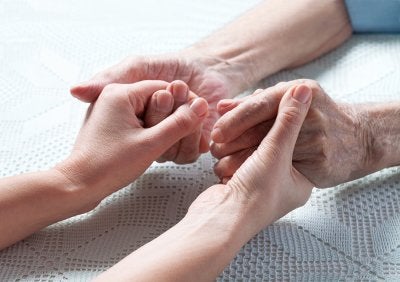Individuals who are in hospice care are often more comfortable living out the rest of their lives at home. The majority of end of life caretaking in Memphis may be handled by hospice professionals and by an in-home caregiver from a private agency. The primary family caregiver, who is usually the spouse or an adult child, will need to have a checklist of steps to take when the individual passes on. 
Locate the DNR
It is likely that your loved one would have a “do not resuscitate” (DNR) order if he or she is in hospice care. You will need to know about this as soon as your loved one enters into hospice care. The DNR is a document that must be issued by a physician. It instructs healthcare providers and/or first responders not to initiate resuscitation efforts in the event that the individual displays cardiac or respiratory arrest. Without a DNR, healthcare providers are required to perform cardiopulmonary resuscitation (CPR). This results in a distressing situation for the surviving family members.
Call Hospice and the Caregiver Agency
After a loved one dies at home , there is usually no need to act immediately. You may wish to sit with your loved one in quiet reflection or you may need to go elsewhere in the home to gather yourself. When you’re ready, call the hospice care team and the private caregiver agency to notify them of the death. They will arrive at your home shortly to assist you and make the official pronouncement.
Contact the Funeral Home
If pre-need arrangements have already been made, you can call the funeral home to notify them. Otherwise, select a local funeral home and make arrangements for the collection of the body. Before the funeral home representatives arrive, the hospice nurse and other caregivers will have already taken certain steps to care for the body and disconnect medical equipment, if necessary.
Make Notifications
If you have close family members nearby, you may wish to notify them before you call the funeral home. They may wish to spend some time with the decedent before he or she is removed. Otherwise, you can make notifications as soon as you feel able to do so. You may not need to make every phone call; notify a core group of close family members and ask that they finish the notifications for you.

